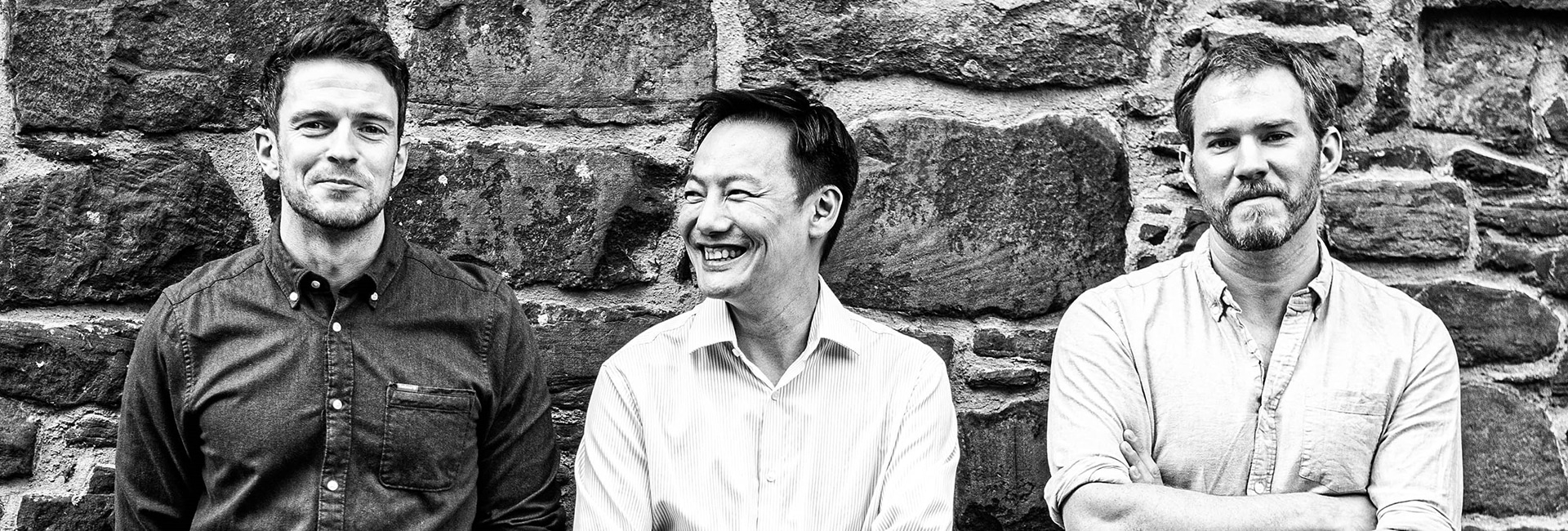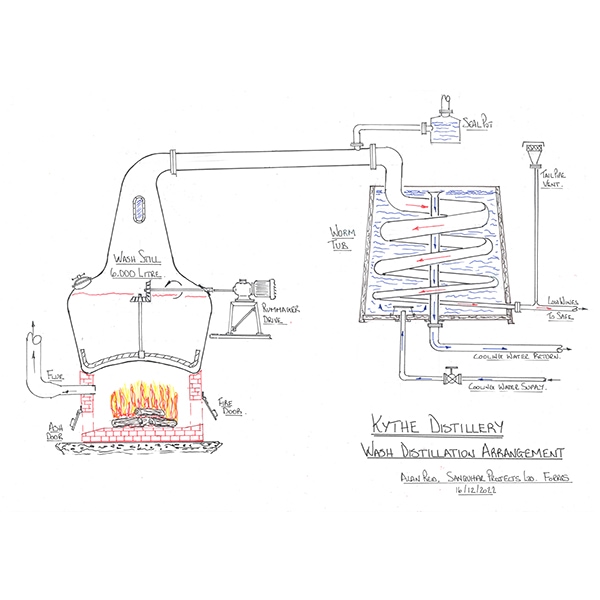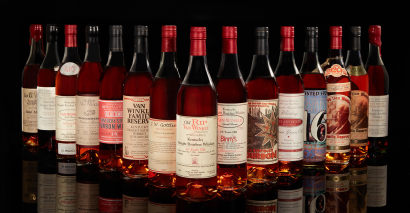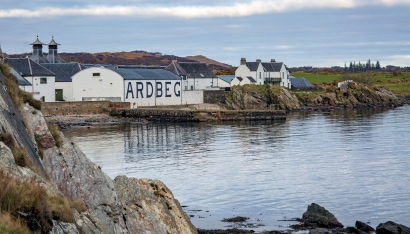
Kythe Distillery's founding members Jonny McMillan, Aaron Chan, and Angus MacRaild aim to produce Highland single malt reflective of scotch whiskies of the past.
Kythe Distillery, a New Arrival in the Scottish Highlands, Gets Ready to Launch
April 12, 2023 –––––– Richard Woodard
The historic county of Perthshire in central Scotland, home to such famous scotch whisky names as Aberfeldy, Edradour, Tullibardine, and Glenturret, is set to welcome a newcomer. Kythe Distillery will aim to create a “beautiful, old-style” Highland single malt, inspired by some of the most historic scotch whiskies ever bottled.
Kythe—a Scots word meaning to demonstrate or make known—will be a farm distiller based at Hills of Bendochy Farm, three miles outside the twin towns of Bengowrie and Rattray. The project is currently awaiting planning approval, with production slated to begin in late 2024.
The venture is led by three whisky experts. Jonny McMillan, currently a Berry Bros. & Rudd whisky specialist, will be the distillery manager. Aaron Chan, founder of Hong Kong-based independent bottler and whisky bar Club Qing, will serve as Kythe’s chairman. Angus MacRaild, an old and rare whisky specialist, consultant, and writer, will be the whisky maker. (Ronnie Cox, a 45-year whisky veteran and brands heritage director at Berry Bros. & Rudd until recently, also joins the team as brand director emeritus.) The three founders are majority shareholders, alongside a small group of investors from around the world. “There are no hedge funds,” says Chan. “They are all people who genuinely love whisky.”
“For us, the inspiration is the old bottlings and examples of old whiskies that we all love and cite as being the most memorable we’ve tasted—whiskies like Bowmore, Laphroaig, Longmorn, Clynelish, and old Springbank, predominantly from the 1950s and ’60s, using production techniques, equipment, and ingredients that generally added up to produce fruitier, fatter, fuller-bodied whiskies that were also more idiosyncratic and specific to each distillery,” explains MacRaild.
The distillery will make roughly 50,000 liters of pure alcohol a year (about 250 casks), championing character over efficiency, using locally sourced, ethically farmed heritage brewing barley varieties such as Maris Otter, drum-malted at a nearby maltster. Phase Two envisages on-site malting and the use of peat, depending on sustainability concerns. A one-ton mash tun will feed clear wort into seven wooden fermenters, and the distillery will source trub—spent brewer’s yeast—from a local brewery for fermentations that could last as long as two weeks. This will deliver, “a high-acid, rich, complex wash that will give us the fat, heavy, fruit-forward spirit that we want,” says MacRaild. “We do think the length of fermentation is foundational,” MacRaild adds. We really want to push the boat on this part of production.”
Kythe will use a direct-fired, wood-fueled, 6,000-liter wash still, and an electrically-heated 4,000-liter spirit still. In both cases, the spirit will be condensed through worm tubs. McMillan says direct fire was a “no-brainer” because of the flavor complexity it creates: residual matter will be burnt on to the bottom of the still via a Maillard reaction, similar to that of steak sizzling on a barbecue. The stills will have a squat shape with gently raised lyne arms, in a deliberate echo of Laphroaig.
Kythe’s cask program will aim to enhance, rather than overshadow, its spirit character. “We want the core DNA of this product to be about the distillate rather than the cask,” says MacRaild. “It will be predominantly refill and carefully sourced sherry casks, and a small amount of first-fill barrels. We are not wanting to lean heavily on more active oak.”
The distillery will have no tourist facilities—“anything else is more work and a distraction,” says MacRaild—but it will have a cask purchasing program for private individuals and independent bottlers.
When will the first Kythe single malt be released? MacRaild notes that a number of its “benchmark” historical whiskies were bottled at 5 to 8 years old, but adds, “We’re going to be led by the distillate…we’re not against releasing younger examples, but we’re not going to rush things.” Patience will be a pre-requisite: Kythe was conceived by McMillan and MacRaild on a drive home from a friend’s birthday celebrations in 2014—a decade before the distillery’s ostensible date to begin production. “This is a lifelong commitment,” says MacRaild.




